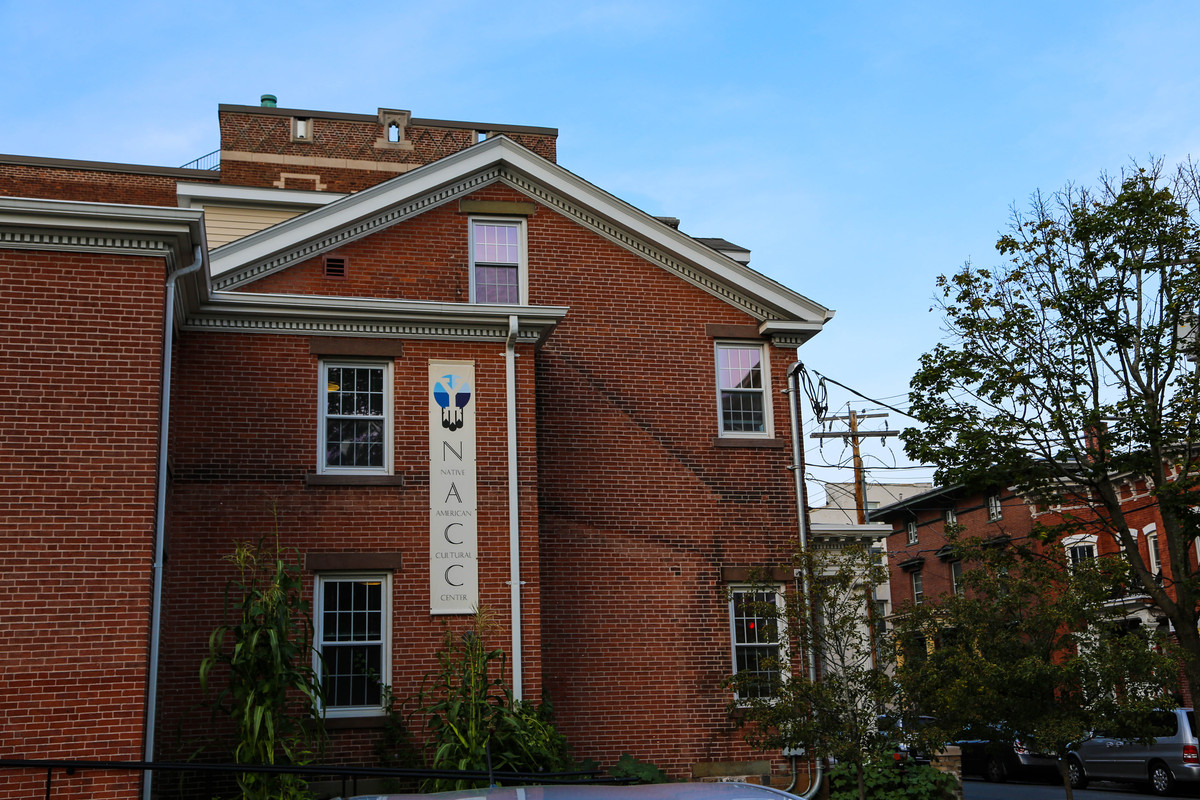NYU-Yale American Indian Sovereignty Project hosts Indian Child Welfare Act teach-in
On Nov. 2, the NYU-Yale American Indian Sovereignty Project hosted a teach-in to discuss the upcoming constitutional challenge to the Indian Child Welfare Act and the importance of the act for protecting Native communities.

Alisia Pan, Contributing Photographer
Ahead of key Supreme Court oral arguments on the Indian Child Welfare Act next Wednesday, the NYU-Yale American Indian Sovereignty Project hosted a teach-in and community discussion over dinner at the Yale Law School.
The teach-in was sponsored by the NYU-Yale American Indian Sovereignty Project, the Yale Native American Cultural Center, the Yale Native American Law Students Association and Native and Indigenous Students at Yale.
The teach-in, a two-part event, featured an overview of the Supreme Court Case Haaland v. Brackeen, which challenged the 1978 Indian Child Welfare Act. In 2017, Chad and Jennifer Brackeen — a white couple — sought to adopt a child of Navajo and Cherokee heritage, which would have violated the ICWA. The Brackeens sued, contending that the act constitutes racial discrimination.
“Our race doctrines are terrible and we have to insulate the rest of our laws because of the devastation that those laws have created,” NYU law professor Maggie Blackhawk said.
The ICWA was passed by Congress in 1978 in response to the unjust removal of Indigenous children by state governments in the United States. The act consists of various provisions granting tribal governments authority in matters of custody of Indigenous children, aiming to ensure that Indigenous children could remain with their families and communities.
Blackhawk explained the significance of the case, provided historical context regarding the development of ICWA and underscored the legal basis for the provisions within the act — refuting the Brackeens’ argument. She outlined the legal basis for the challenge to ICWA, which hinged on whether the act constituted “unconstitutional race-based discrimination” and whether the act violated the 10th Amendment of the Constitution.
Blackhawk added that after the closure of Indian boarding schools in the early 1900s, the federal government chose to give individual states greater jurisdiction over the welfare of Native children. While state governments initially protested against these measures, they agreed once the federal government agreed to fund welfare programs for Native communities.
State governments found that it was cheaper to remove Native children from their communities and place them with non-Native families instead of providing Native families with welfare support. Because of these economic incentives, as well as discrimination against Native communities, state governments removed 25-35 percent of Native children from their families in the 1950s and 1960s. The ICWA was passed to counteract these patterns of child removal.
Blackhawk explained that the ongoing Supreme Court case is “part of a broader conservative movement” to tear down Native sovereignty.
“The big fight here is over history, and the version of history we tell,” Blackhawk said.
The Brackeens are invoking the 1974 Supreme Court Case Morton v. Mancari, which states that the identity classification of “Indian” is a “political classification” and not a “racial identity.”
In 2018, a federal district court in Texas ruled in favor of the Brackeens, declaring the ICWA unconstitutional. The case was then brought to the federal court of appeals which reaffirmed the constitutionality of the ICWA in 2019. Following an en banc review of that judgment in 2021, the Supreme Court will be reviewing the constitutionality of the ICWA.
Blackhawk explained that threats to the ICWA could threaten Federal Indian Law as a whole by destabilizing the sovereign designation of Native tribes.
“The term ‘Indian’ is not solely based upon race, but rather a political category and designation,” Amanda White Eagle, Clinical Fellow at the NYU-Yale American Indian Sovereignty Project, wrote in an email to the News. “Tribes are sovereigns, who maintain an interest in their tribal member citizen children and their respective placements when those children are removed from their respective households.”
She added that the US federal and state governments have a “storied history of Indian child removal marked with policy failures.” The federal government’s attempts to “shift responsibility” to state governments led to the forced removal of “thousands of Native children … from Native parents, families, and communities.”
At the community dinner, which was held at the Native American Cultural Center, Leah Shrestinian ’18, the program manager for the NYU-Yale American Indian Sovereignty Project, called on attendees to take action before next Wednesday’s oral arguments through opinion pieces and other advocacy efforts.
“We just felt as a group with this really scary and intense challenge against ICWA coming up, we should think through how we as individuals and community members can spread awareness about ICWA,” Shrestinian said.
In an email, Shrestinian added that the Sovereignty Project has been working on advocacy efforts prior to the Supreme Court ruling, consisting of developing educational materials, amicus briefs and awareness efforts.
She encouraged non-Native individuals to learn about the importance of ICWA from sources such as the Sovereignty Project’s brief regarding the case.
“Over the course of the past year, the Native Amicus Briefing Project has filed four amici briefs in the United States Supreme Court — Penobscot Nation v. Frey, Denezpi v. United States, Oklahoma v. Castro-Huerta, and Brackeen v. Haaland,” White Eagle wrote. “The rulings of these cases have had and will have far-reaching consequences across Indian Country.”
The Sovereignty Project is currently working on a fifth pending amicus brief, according to White Eagle.
The Native American Cultural Center is located at 26 High St.







